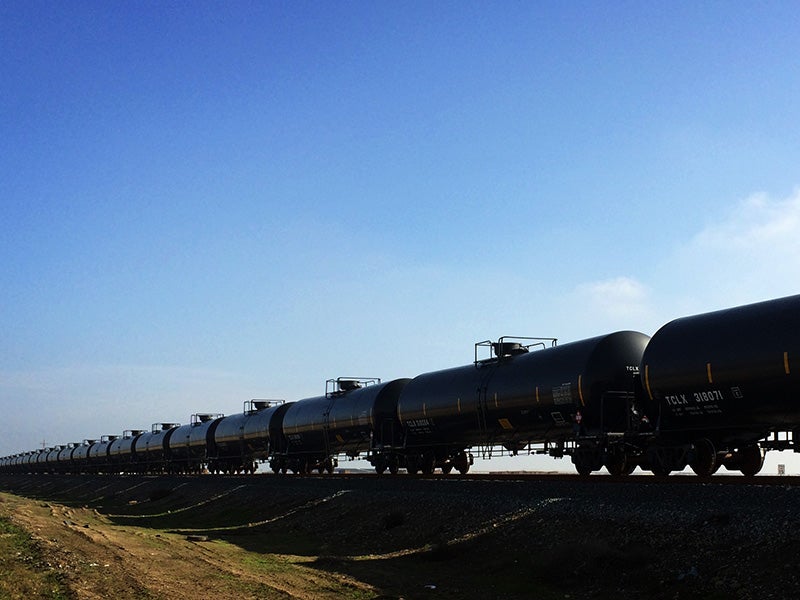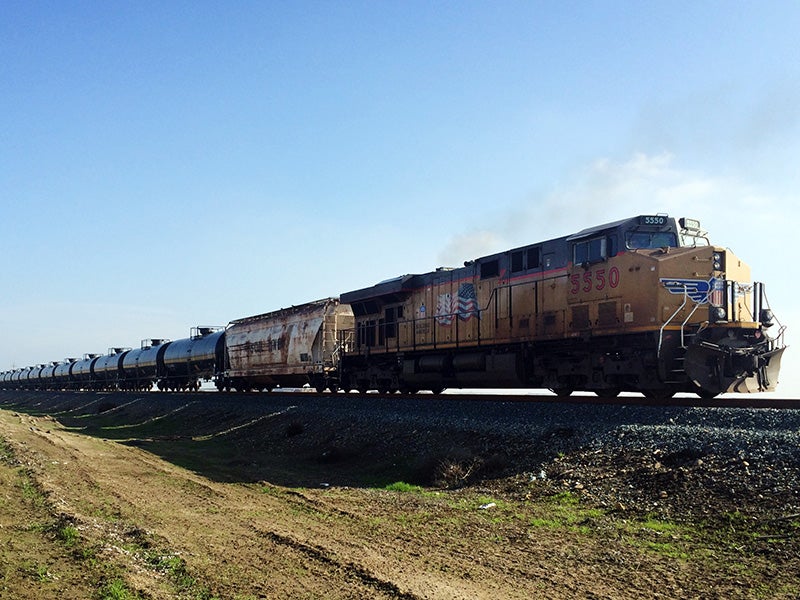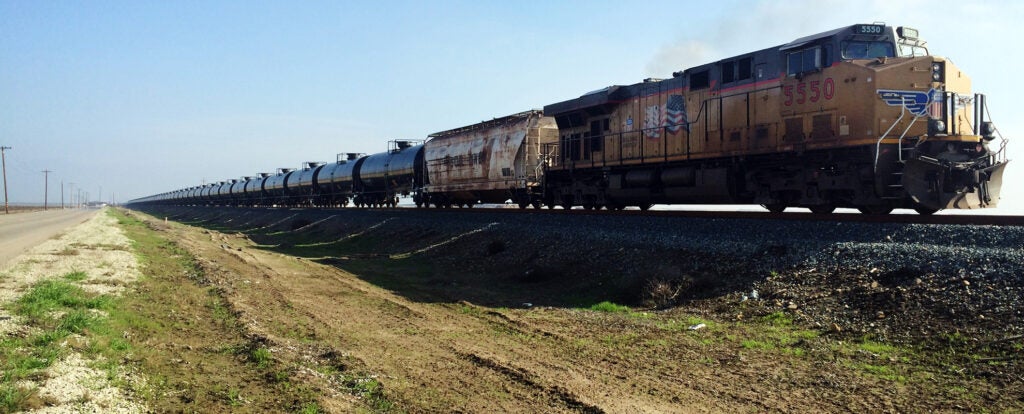Stopping Dangerous Oil Trains at Bakersfield Crude Terminal
Much of the oil shipped by rail in California is either extremely toxic Canadian tar sands oil or the Bakken crude responsible for major explosions in derailments across the continent. Facilities such as the Bakersfield Crude Terminal are also major sources of volatile organic compound emissions—a precursor to ozone air pollution.
Case Overview
Community and environmental groups have filed suit over the expansion—orchestrated mostly in secret—of a crude oil operation in Kern County that could lead to a 1,000 percent increase in the amount of crude imported by rail into California each year. The newly opened Bakersfield Crude Terminal in Taft, Calif., has the capacity to receive two 100-car unit trains a day of volatile crude oil from the Bakken shale formation as well as heavier, highly toxic tar sands.
The lawsuit was filed against the San Joaquin Air Pollution Control District for the piecemeal permitting process that allowed one of the largest crude oil operations in California to expand largely in secret, without environmental review of the risks posed by importing millions of gallons a day of toxic, explosive oil from North Dakota and Canada.
Earthjustice is representing Association of Irritated Residents (AIR), ForestEthics, Sierra Club and the Center for Biological Diversity, and joins Communities for a Better Environment (CBE)’s Staff Attorneys, representing CBE and its members in the lawsuit.
A public records request revealed Air District officials acquiescing to requests from the project manager for the Bakersfield Crude Terminal to keep the project out of public scrutiny. In one instance, the project manager for the Bakersfield Crude Terminal asked the Air District to “rerun your numbers” on the facility’s emissions to keep it under the threshold for triggering Clean Air Act review, and the Air District permit officer responded by offering advice for how the project can “avoid public noticing” and pollution controls. In another instance, after the Bakersfield Crude Terminal pulled a permit application following intense public scrutiny that highlighted the significant impacts the project would have on air quality and safety, the Air District later approved a slightly modified application from the Bakersfield Crude Terminal, suddenly deeming its approval of the permit “ministerial” and therefore exempt from public notice and pollution controls.
According to the California Energy Commission, oil shipments by railroad into California hit an all-time record this year, with nearly 285 million gallons arriving by train in the 12 months of 2014—up from just two million only four years ago. Much of the oil shipped is either extremely toxic and heavy Canadian tar sands oil or the Bakken crude responsible for major explosions and fires in derailments across the continent.
In addition to dramatically increasing the risk to communities along the rail route, facilities such as the Bakersfield Crude Terminal are major sources of volatile organic compound emissions—a precursor to ozone air pollution. Breathing ozone is hazardous to respiratory health, and the San Joaquin Valley is one of two air basins in the United States designated “extreme nonattainment” for federal ozone standards. The degraded state of the San Joaquin Valley’s air results in more than a thousand premature deaths each year, and one in six Valley children is diagnosed with asthma.

Case Updates
Case page created on January 29, 2015.

